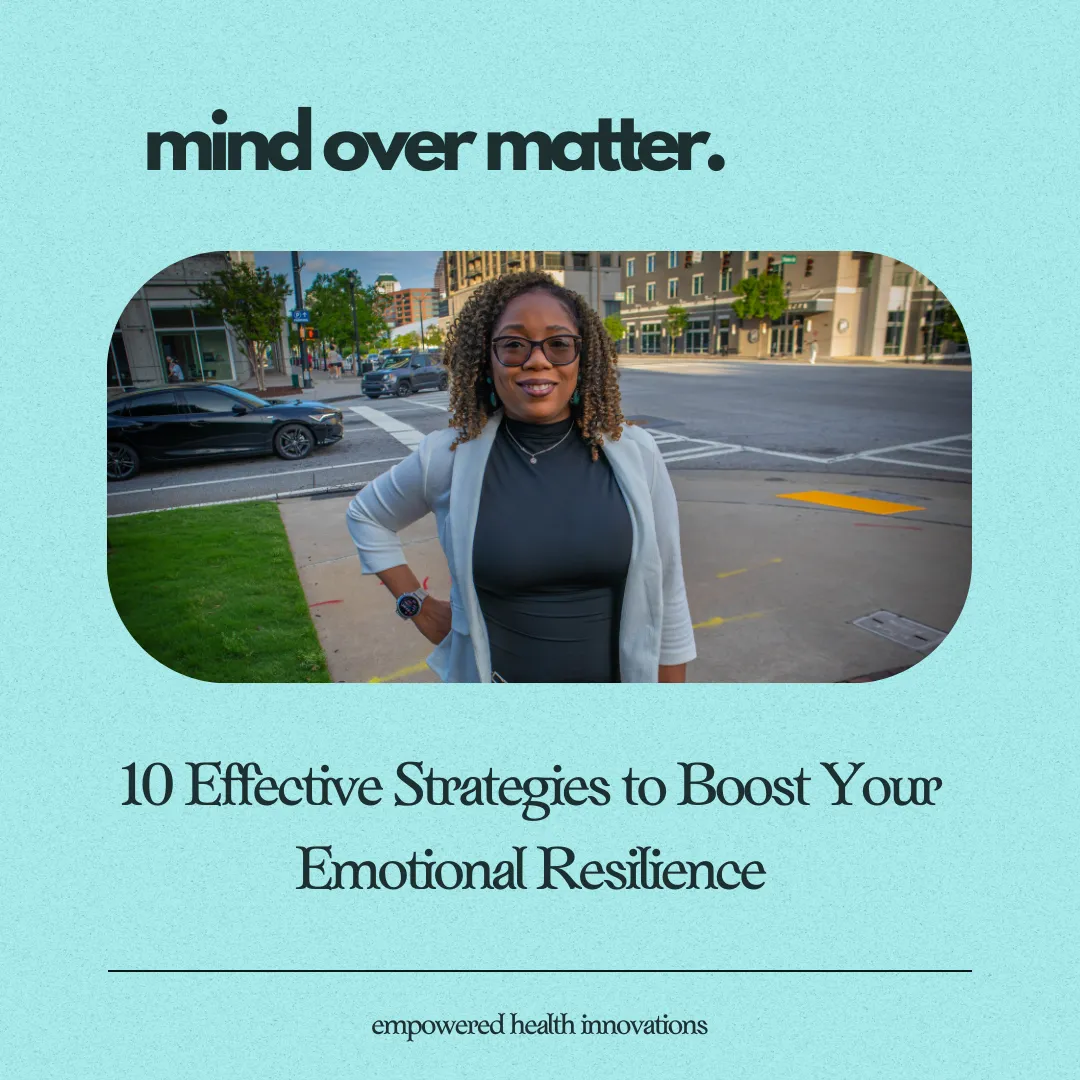
10 Effective Strategies to Boost Your Emotional Resilience
10 Effective Strategies to Boost Your Emotional Resilience
Emotional resilience is the ability to adapt to stressful situations and bounce back from challenges with a positive outlook. Building this resilience is crucial for maintaining mental health and well-being. Here are ten effective strategies to enhance your emotional resilience:
1. Develop a Positive Mindset
A positive mindset is foundational to emotional resilience. Practice gratitude by regularly acknowledging the good things in your life. This shift in focus can help you see challenges as opportunities for growth rather than insurmountable obstacles.
2. Cultivate Strong Relationships
Strong social connections provide support during tough times. Invest time in building and maintaining relationships with family, friends, and colleagues. Having a robust support network can help you navigate life's ups and downs more effectively.
3. Practice Mindfulness and Meditation
Mindfulness and meditation techniques can help you stay grounded in the present moment. These practices reduce stress and enhance your ability to cope with negative emotions. Regular mindfulness practice can improve emotional regulation and increase resilience.
4. Set Realistic Goals
Setting achievable goals gives you a sense of purpose and direction. Break larger tasks into smaller, manageable steps. Celebrate small achievements along the way to build confidence and maintain motivation.
5. Maintain a Healthy Lifestyle
Physical health significantly impacts emotional well-being. Regular exercise, a balanced diet, and adequate sleep are essential for maintaining your energy levels and mood. Physical activity, in particular, releases endorphins, which naturally boost your mood.
6. Learn from Experience
Reflect on past experiences to understand how you've overcome challenges before. Recognize the strategies that worked and apply them to new situations. Learning from both successes and failures helps build resilience over time.
7. Develop Problem-Solving Skills
Improving your problem-solving skills can help you tackle challenges more effectively. Approach problems with a solution-oriented mindset. Break down the problem, consider various solutions, and take decisive action.
8. Enhance Emotional Intelligence
Emotional intelligence involves understanding and managing your emotions and recognizing the emotions of others. Improving emotional intelligence can help you navigate social interactions more effectively and maintain better relationships, contributing to overall resilience.
9. Practice Self-Compassion
Treat yourself with kindness and understanding during difficult times. Acknowledge your feelings without judgment and avoid harsh self-criticism. Self-compassion fosters a positive inner dialogue, helping you recover from setbacks more quickly.
10. Seek Professional Help When Needed
There is no shame in seeking help from a mental health professional. Therapy or counseling can provide valuable tools and support for building resilience. Professionals can help you develop coping strategies tailored to your unique circumstances.
Conclusion
Building emotional resilience is a continuous process that involves cultivating a positive mindset, maintaining strong relationships, and taking care of your physical and mental health. By incorporating these strategies into your daily life, you can enhance your ability to handle stress, recover from setbacks, and thrive in the face of challenges. Resilience not only improves your well-being but also empowers you to live a more fulfilling and balanced life.